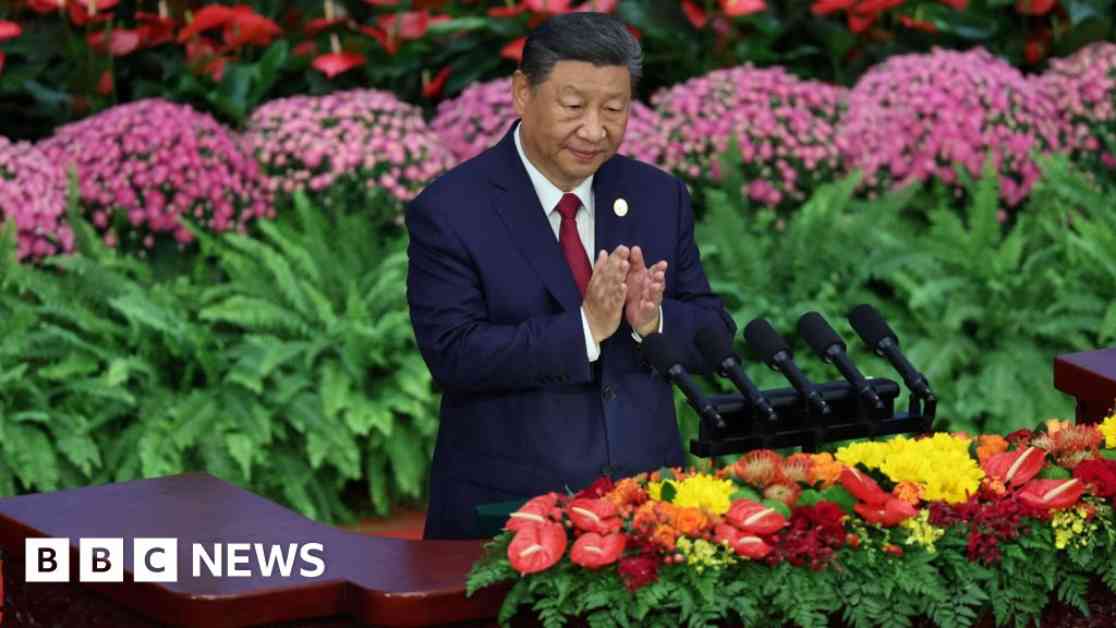China-Africa Summit: President Xi Jinping Commits to Sustainable Development
China’s Influence in Africa
China’s influence in Africa remains significant, with President Xi Jinping recently committing to about $50 billion of investment to the continent over the next three years. While other global powers face challenges in gaining traction in Africa, China has managed to navigate a middle ground, becoming a reliable partner for many African governments.
Delegations from over 50 African states gathered in Beijing for the Forum on China-Africa Cooperation (Focac) summit, highlighting the importance of the relationship between China and Africa. The summit saw the participation of numerous African leaders, including both long-standing figures like Congo-Brazzaville’s Denis Sassou-Nguesso and newcomers like Senegal’s Bassirou Diomaye Faye, showcasing China’s inclusive approach to engagement with the continent.
China’s Investment in Africa
One of the key aspects of China’s engagement with Africa is its focus on infrastructure development. Chinese investment in transport infrastructure projects across Africa, such as highways and railways, has been instrumental in driving economic growth and connectivity on the continent. Despite criticisms of labor practices and debt accumulation, many African governments view China’s investment as essential for their development.
At the recent Focac summit, President Xi Jinping emphasized a shift towards sustainable development, particularly in the green energy sector. China pledged significant funding for clean energy projects and manufacturing, including electric vehicles, signaling a commitment to supporting Africa’s industrial growth in environmentally friendly ways. This focus on green technology aligns with global efforts to combat climate change and promote sustainable development.
Challenges and Opportunities
While China’s investment in Africa has been praised for its scale and impact, there are also challenges that need to be addressed. Concerns about debt sustainability, labor practices, and environmental impact have been raised in relation to Chinese projects in Africa. It is essential for both Chinese investors and African governments to ensure that development initiatives are implemented responsibly and transparently.
The issue of debt sustainability is particularly critical, as many African countries have faced challenges in managing their debt burdens in the past. China’s lending practices, while enabling infrastructure development, have also contributed to debt vulnerabilities in some countries. Moving forward, there is a need for greater transparency and accountability in financial agreements between China and African nations to prevent debt crises.
The Promise of Green Technology
The emphasis on green technology and sustainable development at the Focac summit presents an opportunity for Africa to leapfrog into the future. By investing in renewable energy, electric vehicles, and other clean technologies, African countries can reduce their carbon footprint and contribute to global efforts to combat climate change. China’s support for these initiatives can help accelerate the transition to a greener economy in Africa.
In addition to green energy projects, the summit also discussed cooperation in other sectors, such as nuclear energy. While nuclear power has its challenges, including safety and security concerns, it could offer a reliable and clean energy source for African countries. By partnering with China on nuclear projects, African nations have the opportunity to access advanced technology and expertise in this field.
The Path Forward
As China and Africa deepen their economic ties, it is essential to ensure that development benefits are shared equitably and sustainably. The Beijing Declaration adopted at the Focac summit outlines a shared vision for future cooperation between China and Africa, emphasizing mutual respect and partnership. By working together on infrastructure projects, green technology initiatives, and other areas of collaboration, China and Africa can build a more prosperous and sustainable future for both regions.
Looking ahead, it will be crucial for both Chinese and African leaders to prioritize transparency, accountability, and environmental responsibility in their development efforts. By addressing the challenges and seizing the opportunities presented by the China-Africa partnership, both regions can achieve shared prosperity and sustainable development for generations to come.



























